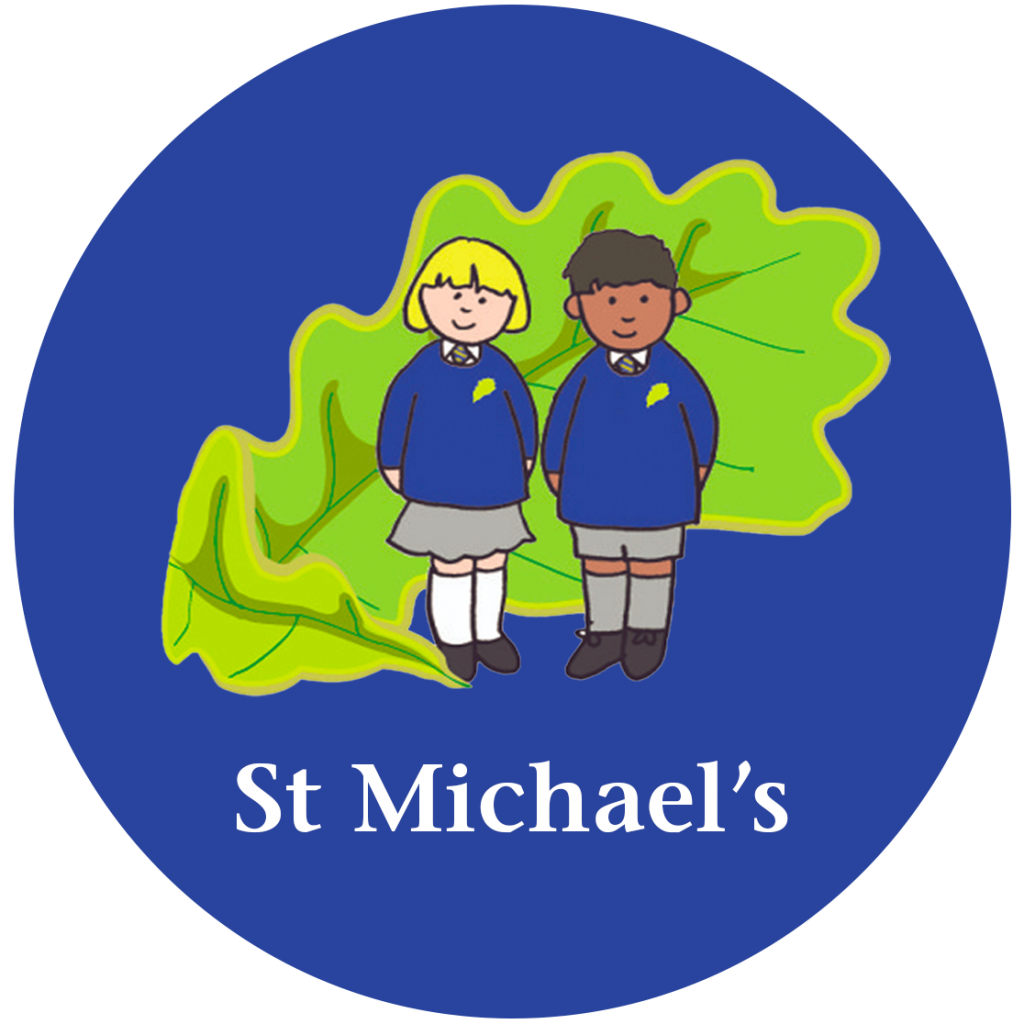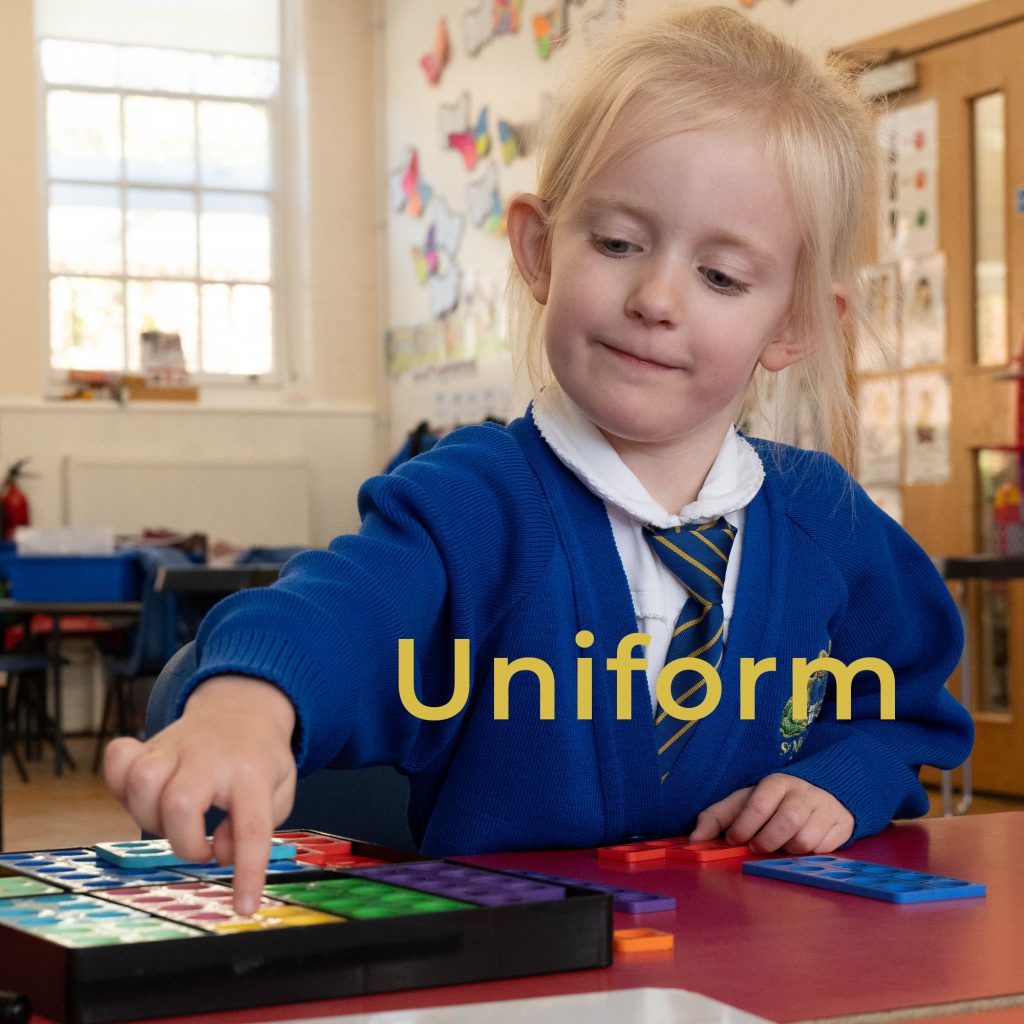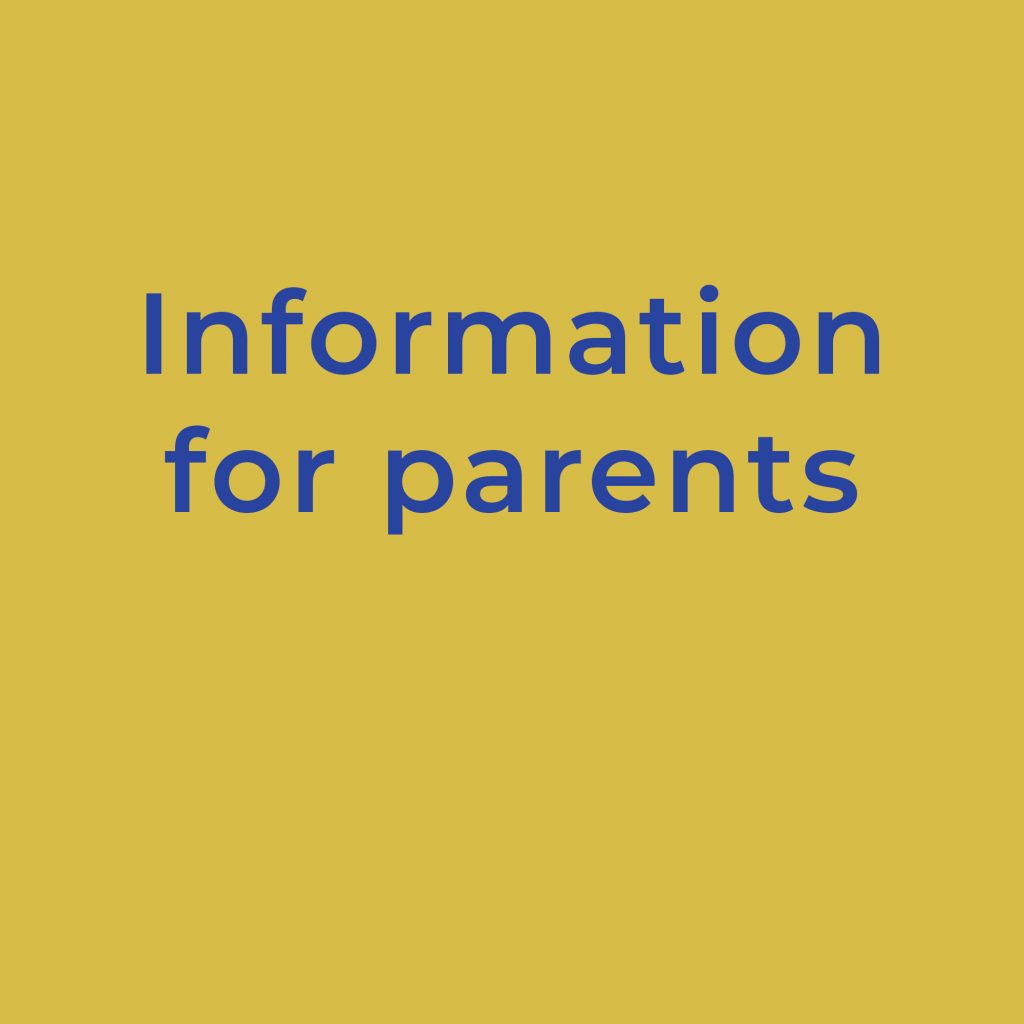Reception

Welcome to Ladybirds
Topics in the Early Years are child centred.
Teacher’s use the children’s interests and fascinations to inform our planning and choose topics and themes which the children are interested in and motivated by.
Having a child centred approach to teaching means that the topics will vary from one year to the next, and may change frequently throughout the year; one topic may also last much longer than another.
For example a week based around the story of The Very Hungry Caterpillar could last a week and lead onto more learning about healthy eating, days of the week, different types of mini beasts or life cycles depending on the children’s interests, which could them provide the children with several weeks of learning within the term.
We plan some topics for key dates and celebrations throughout the year, for example; Harvest time, Diwali, Bonfire Night, Christmas, Chinese New Year, Pancake Day and Easter, however some of these may last a few days and some may last 2 weeks.
Child-centred approach
Our Reception children have free access to the outside.
This includes a creative area where they can make fairy houses, build dens, hunt for mini beasts and cook in the mud kitchen.
They also have an area for practising physical activities including use of outdoor bikes and finally a calm area where children can develop their creative skills by painting, creating adventures for small world toys and become project managers and builders, building with duplo, wood and bricks.
Our Reception Team
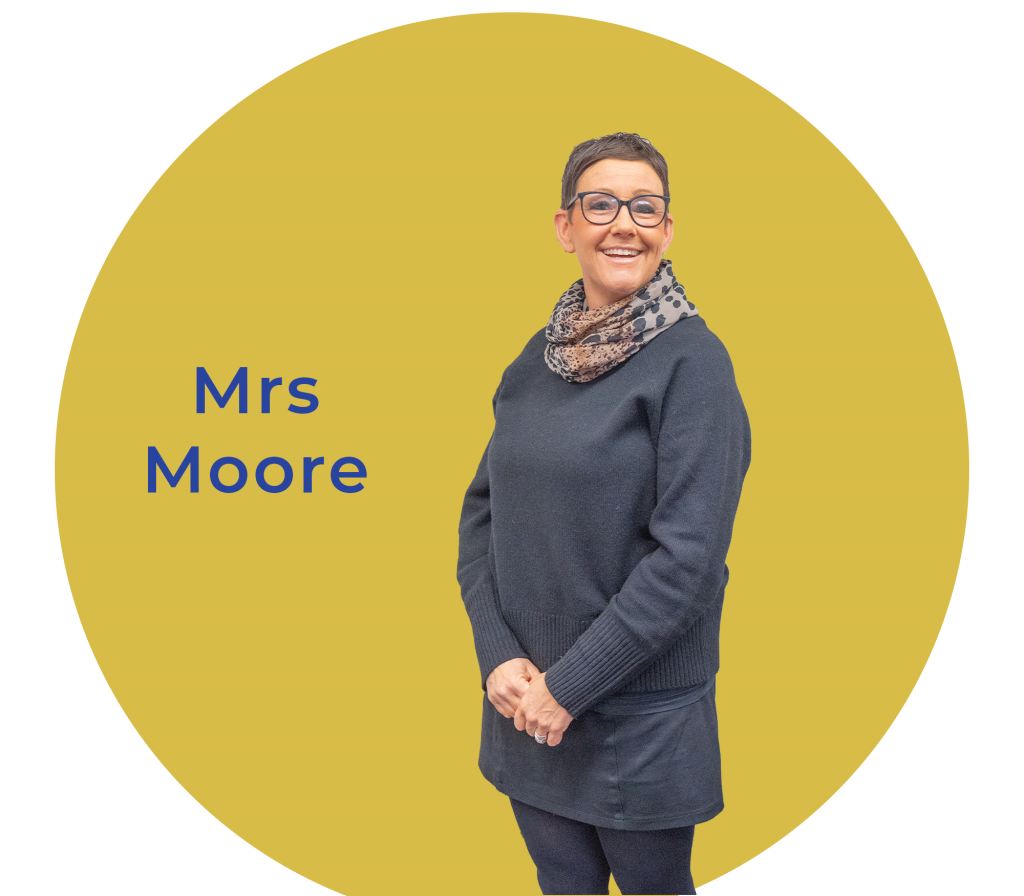
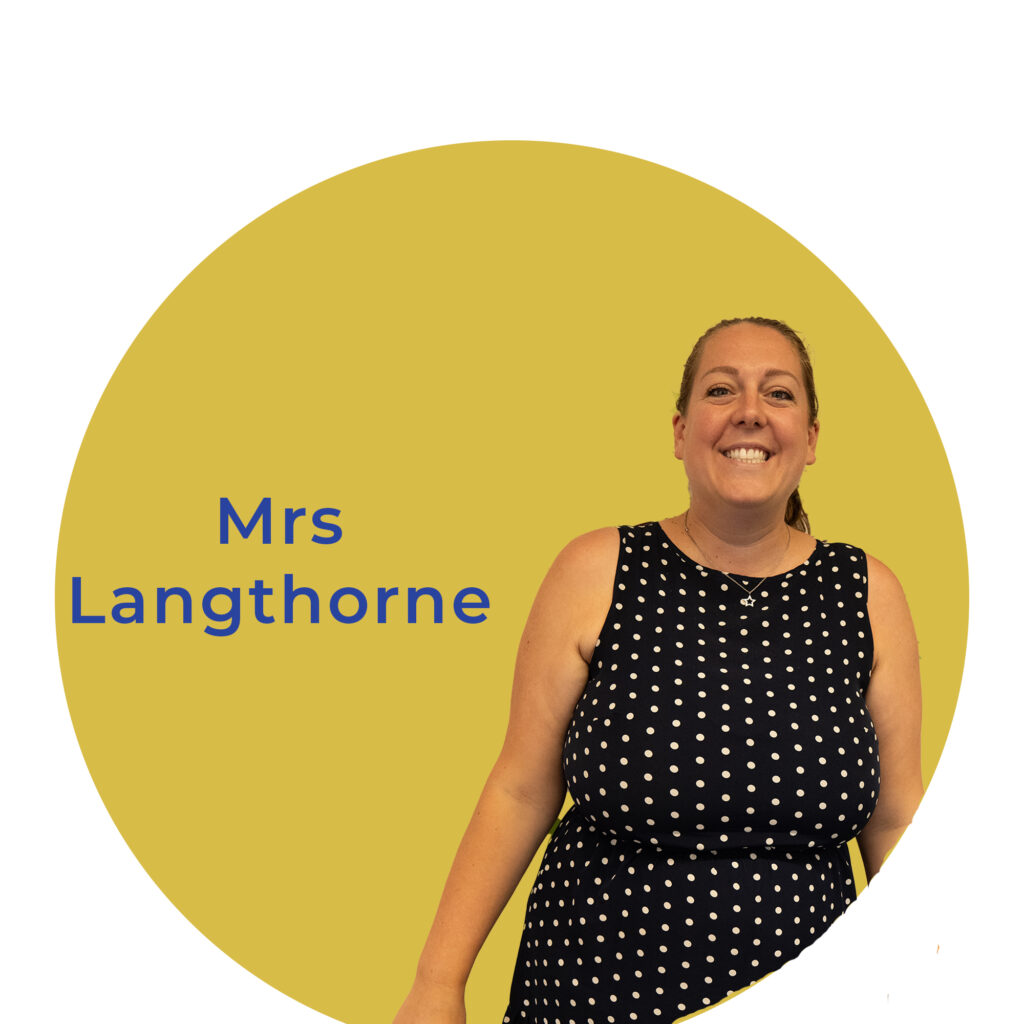
Support Staff
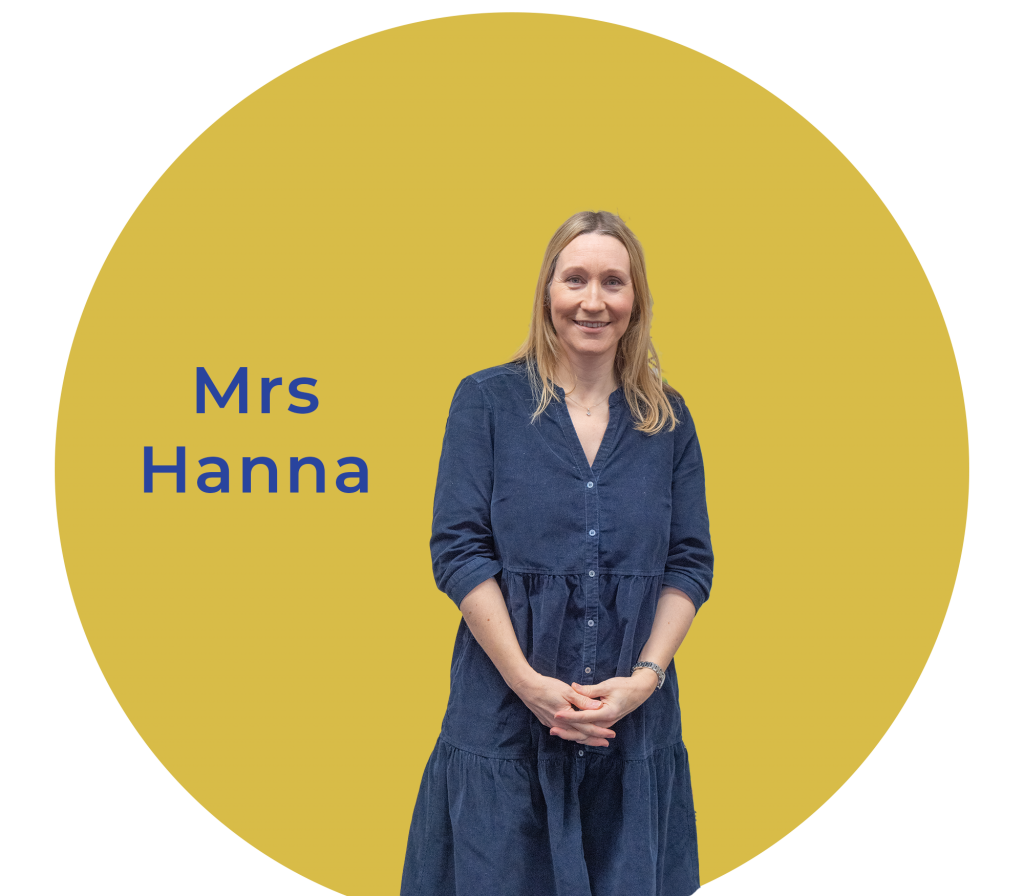
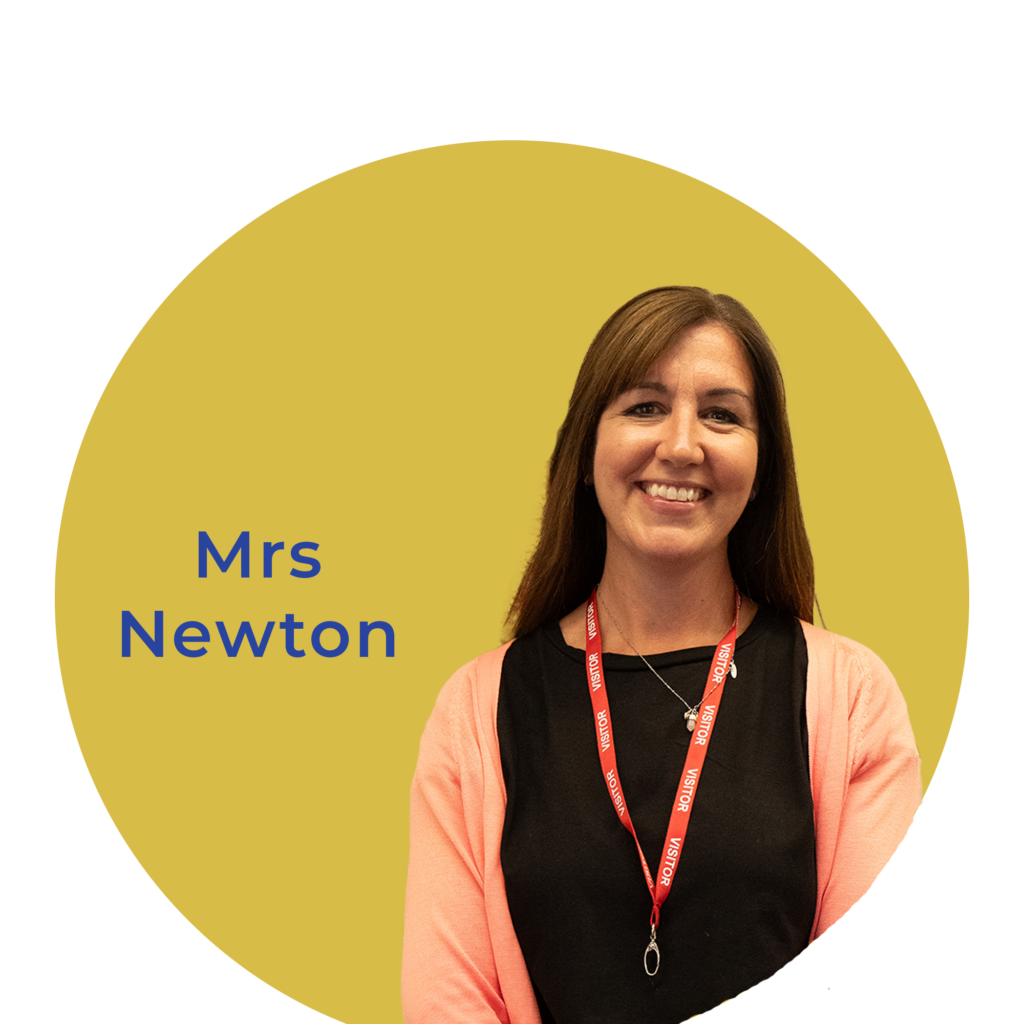
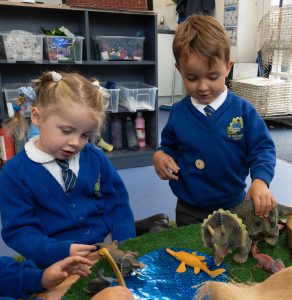
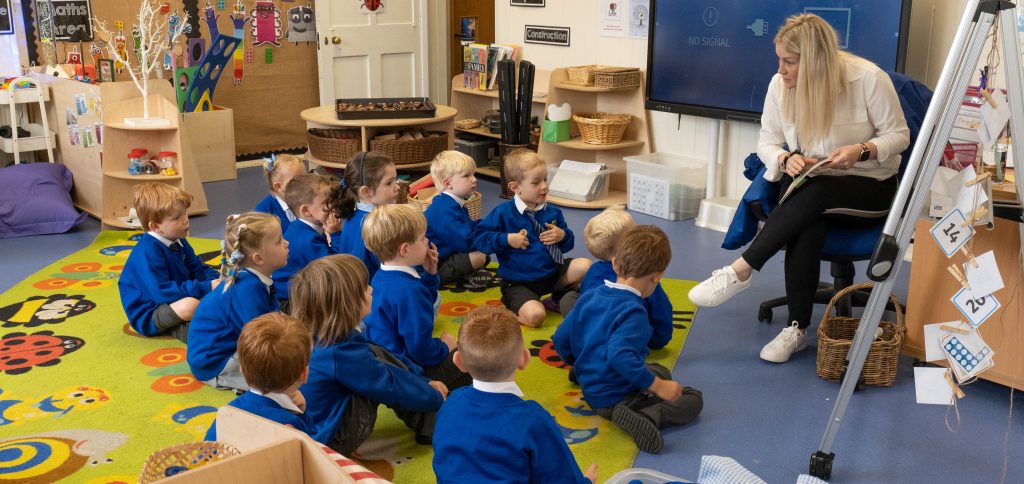
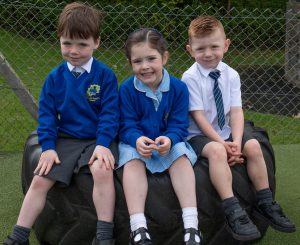
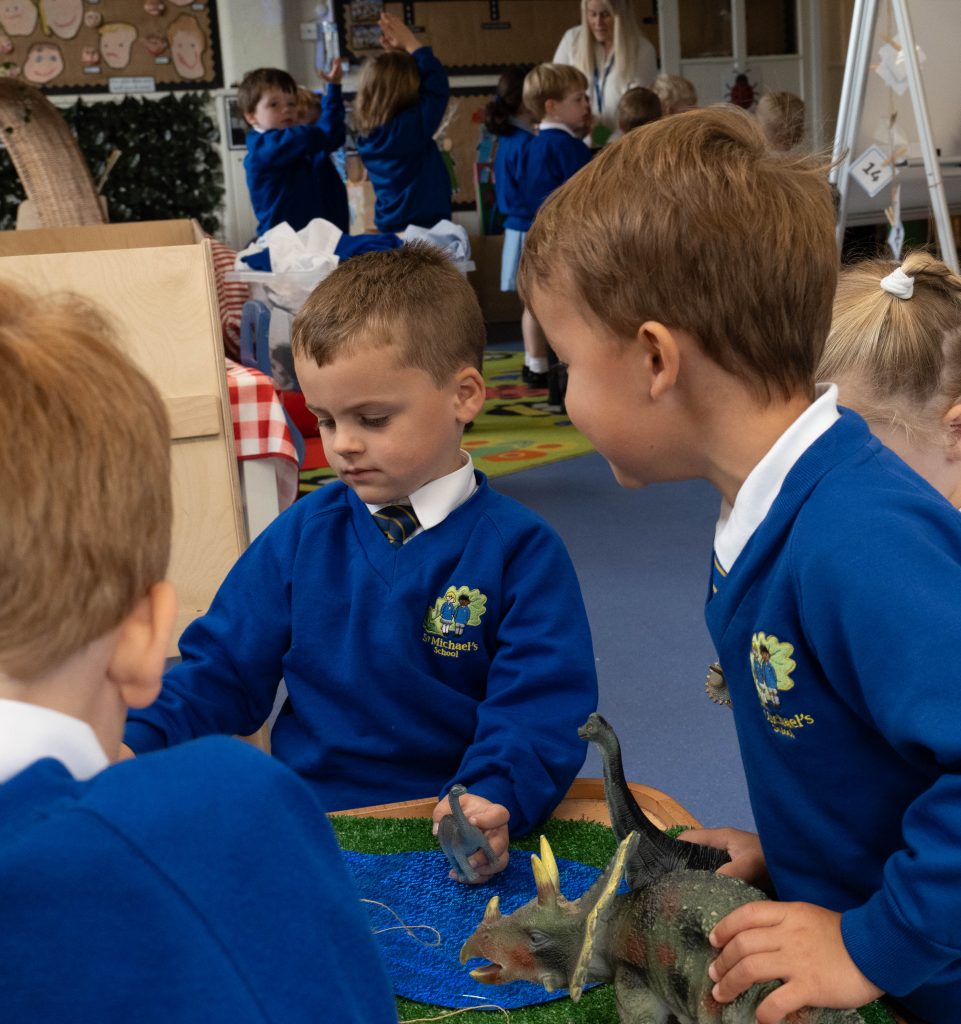
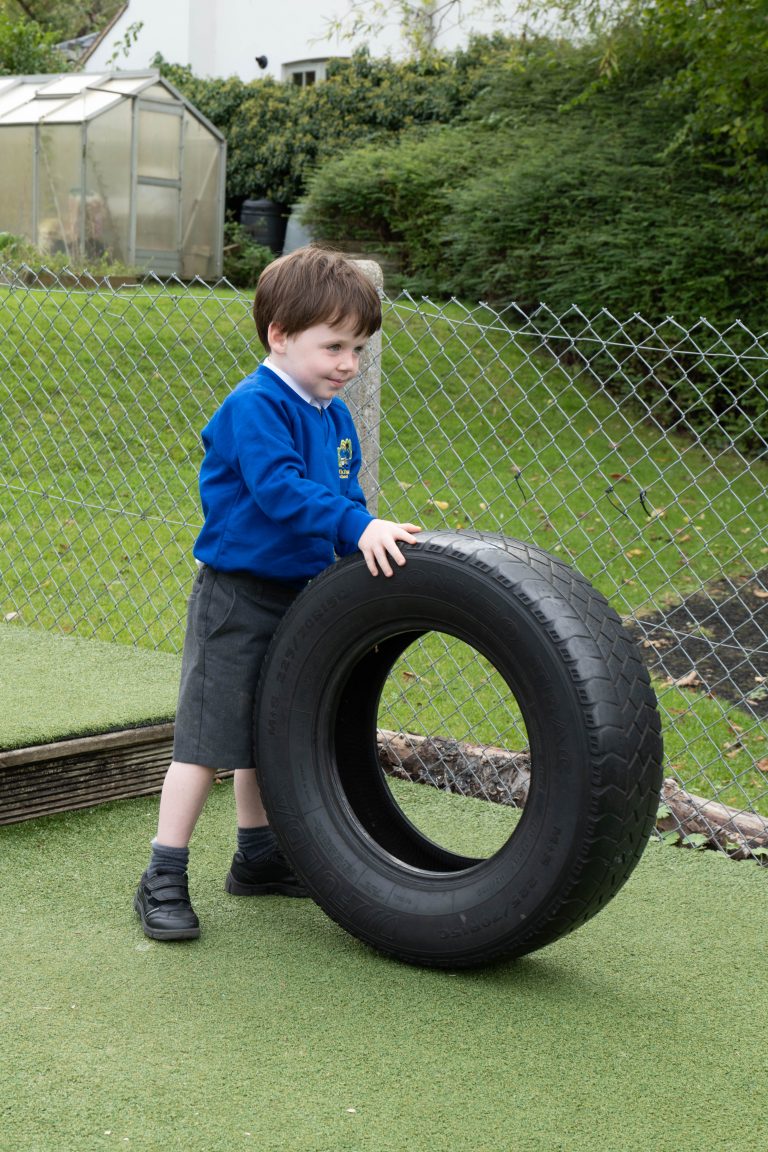
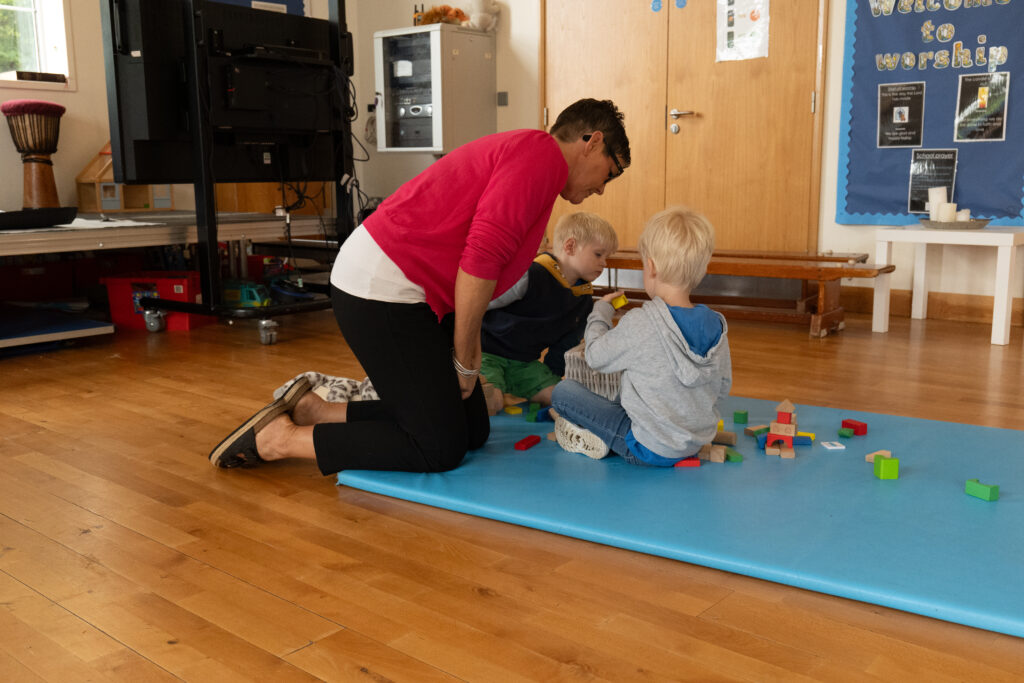
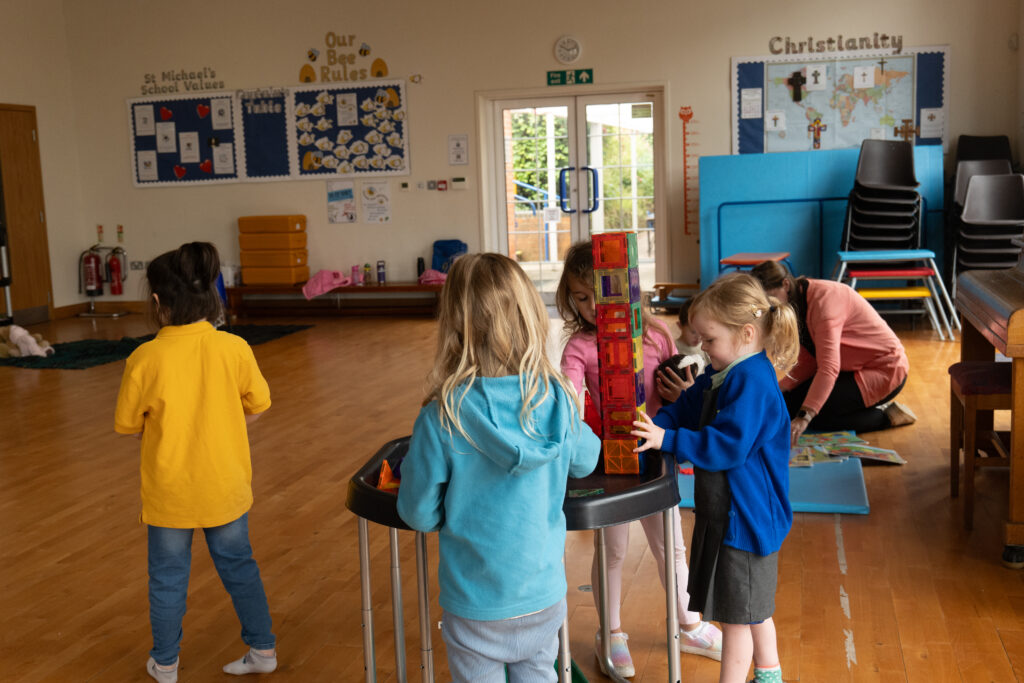
The Foundation Stage Curriculum
In Reception we continue the Early Years Foundation Stage which the children begin in Nursery / Preschool.
The Foundation Stage Curriculum is divided into seven areas of learning.
The 3 prime areas are:
- Personal social and Emotional Development
- Physical Development
- Communication and Language
The 4 specific areas are:
- Literacy
- Mathematics
- Understanding of the World
- Expressive Arts and Design
Reading Book Scheme
At St Michael’s the children follow the Read, Write Inc. syllabus.
The children initially bring home wordless books telling the story by looking at the pictures. This helps them to develop their story language.
Once the children can recognise some graphemes (sounds) and they are beginning to blend, they bring home phonetically decodable books with simple sentences. The books will match the phonic sounds that they know. The length of the text and the child’s fluency will determine how many books a week are sent home. The aim is to re-read books in order to develop fluency.
Our expectations are that all children read at home at least 4 times a week. The sooner a regular routine is implemented the easier it will be for you and your child.

Remember, we have an open door policy.
Please speak to us whenever you have any worries or concerns, big or small.
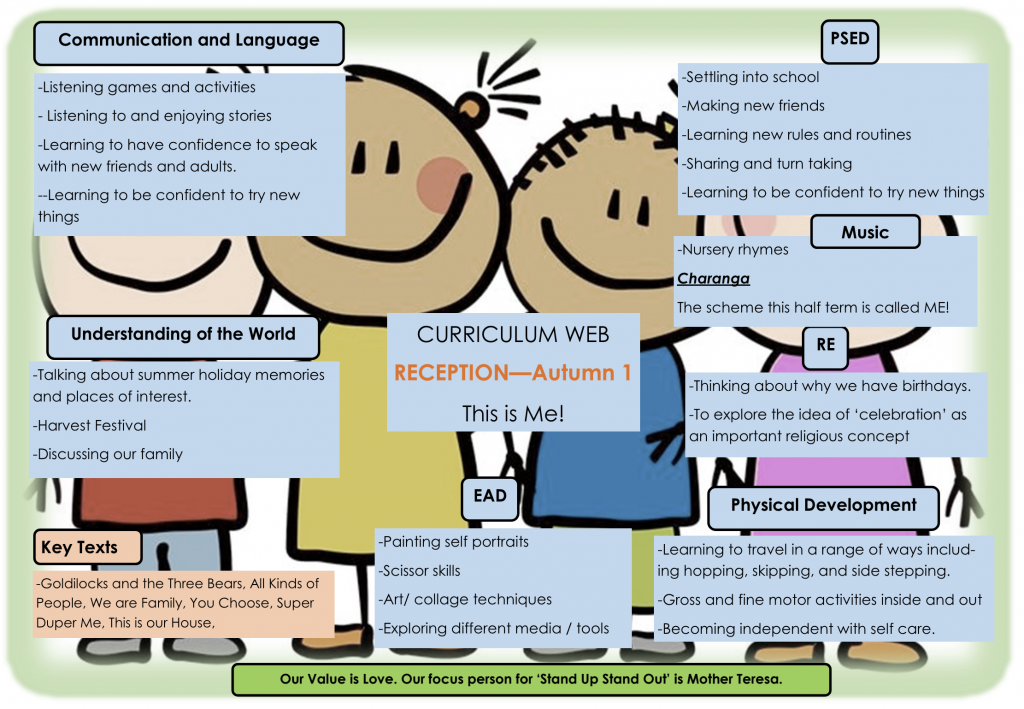
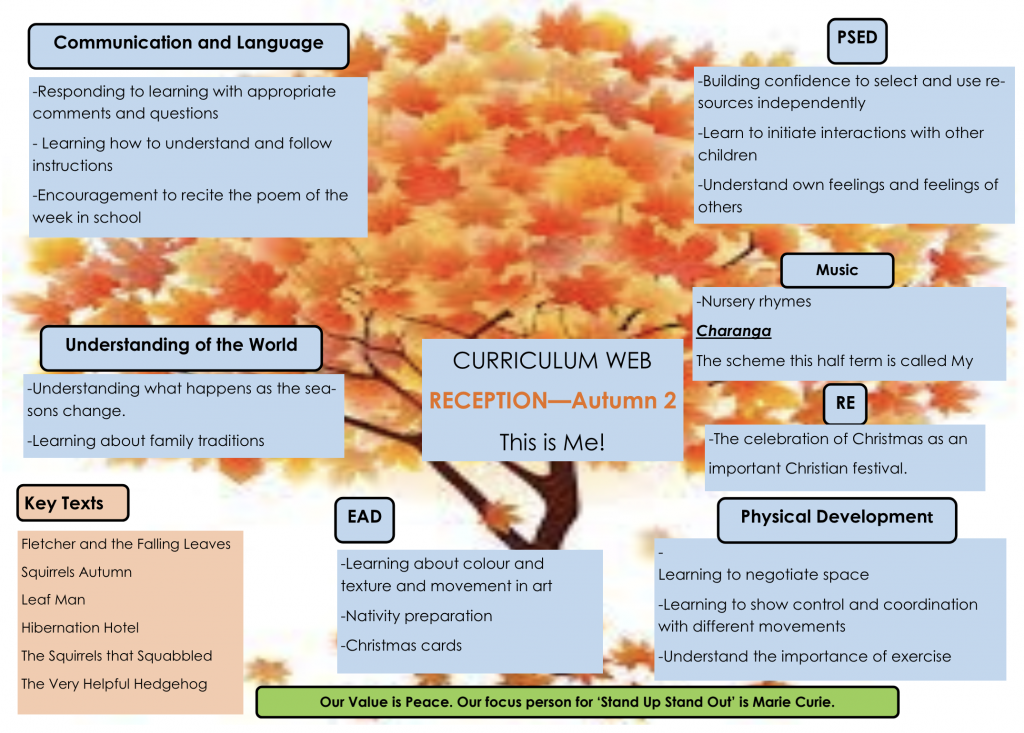
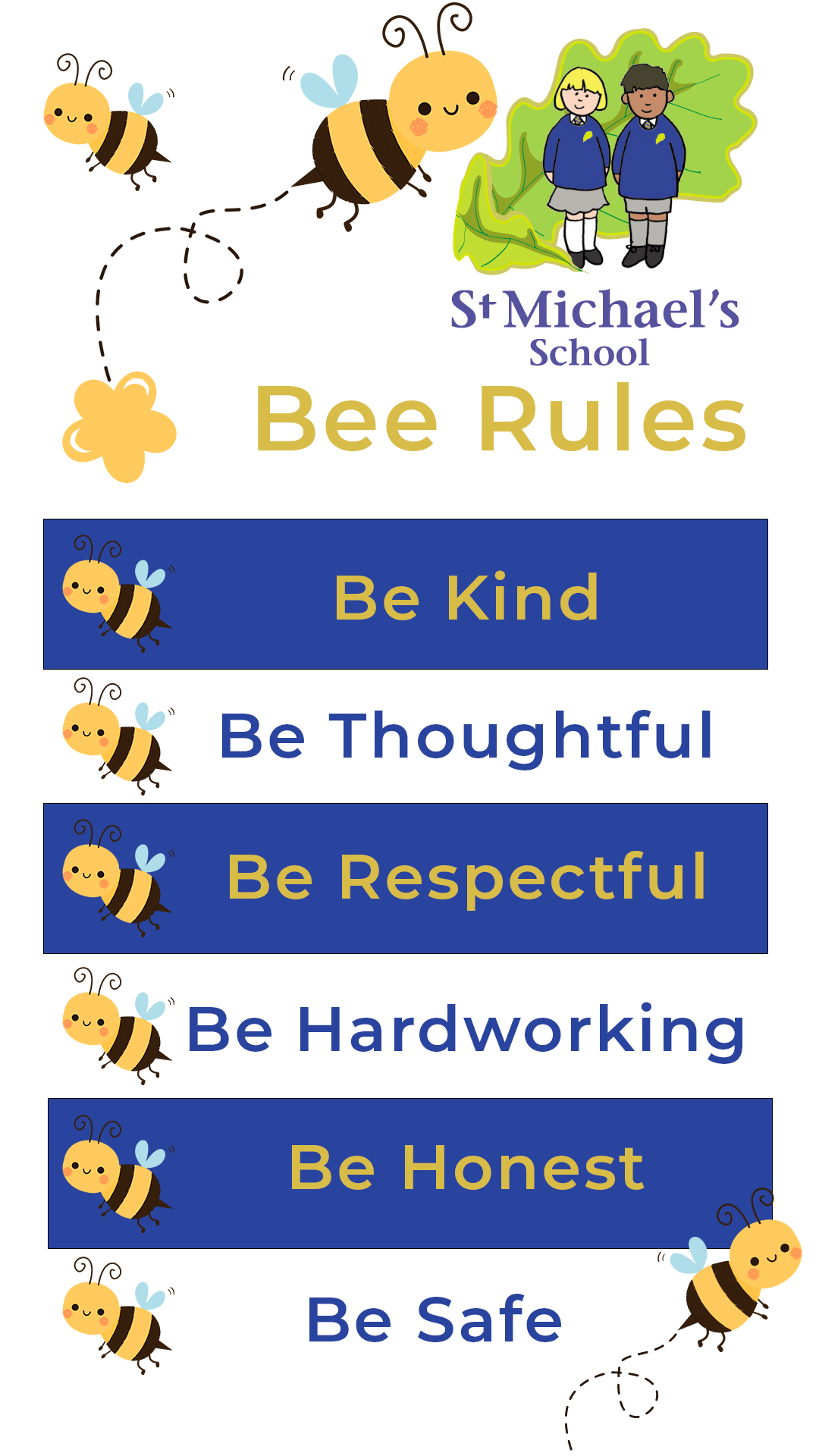
FAQs
We currently use White Rose
We use Read Write Inc.
Fred the Frog helps children read and spell. He can say the sounds in words, but he can’t say the whole word, so children have to help him.
To help children read, Fred (the teacher) says the sounds and then children say the word.
‘Fred in your head’
Once children can sound out a word, we teach them to say the sounds silently in their heads.
We show them how to do this by:
- whispering the sounds and then saying the whole word;
- mouthing the sounds silently and then saying the whole word;
- saying the whole word straight away.
‘Special Friends’
Special friends are a combination of two or three letters representing one sound, e.g. ck, ay, igh, oa.
Reading!
Reading is key to EYFS development. Please aim to read at home every day.
Concentrate on phonics to blend/ segment and decode words.
Please sign the reading record and highlight any concerns. Even if you read your library book together, tell us.
Every week you will be given a video link to our weekly sounds. Please allow time for you child to hear these.
Lunchtime is 12pm – 1pm
All the school will come together in the hall and eat lunch.
Lunch is served to the children by our catering team. The children are given a cup of water to have with their meal.
Our lunchtime supervisors keep an eye on all children and what they have eaten.
After children have finished lunch, they go into the playground together.
This is an important time to develop physical, social and educational development. Children are encouraged to mix across the year groups and engage in active play.
We have a sports coach (Mr Stevenson) who comes into St Michael’s to offer PE classes and afterschool clubs.
You can find out more about Mr Stevenson here.
You can usually catch your child’s teacher at drop off, however, if you feel the matter is more sensitive please speak to our reception team to book in a meeting with your child’s teacher.
If you feel your child is struggling, we are most likely aware of this.
Please arrange a time to speak to a Senior Leader to discuss your child’s needs and any concerns.
